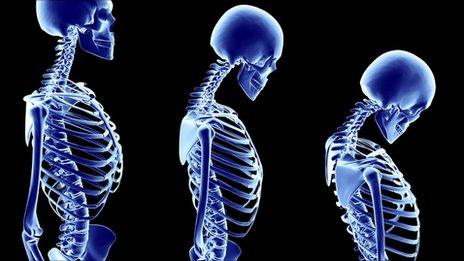Oxford and Southampton health research to get £147m boost
- Published

The money will fund more than 25 research themes over the next five years
Researchers working to improve treatment for NHS patients are to be given £147m to help fund their efforts.
A total of £122m will be used by Oxford experts working in brain and mental health as well as cancer and dementia research among others.
Southampton researchers, who have been given £25m, will use the grant to expand work in nutrition, respiratory disease and infection.
Their endeavours will aim to improve care, diagnosis and treatment.
The government grants have been awarded to Oxford's two National Institute for Health and Care Research (NIHR) Biomedical Research Centres (BRC) and to the NIHR Southampton Biomedical Research Centre (BRC).
The money will fund more than 25 research themes over the next five years.
'Wonderful opportunity'
In Oxford, researchers will look at a variety of areas, including developing mental health interventions for young people and delivering brain technologies for use in psychological, psychiatric and brain disorders.
Professor John Geddes, director of the NIHR Oxford Health BRC, said the grant provided experts "with a wonderful opportunity" to transform care for mental and brain health and wellbeing across the world.
"We are now looking forward to co-designing with patients and public powerful new approaches that can be tested, refined and then implemented across the NHS and beyond," he added.
Professor Diana Eccles, dean of the faculty of medicine at the University of Southampton, said experts in the city would use their share of the funding to expand research capacity in health data and in critical and perioperative care.
The wider funds, which have been awarded to 20 biomedical research centres across England, are expected to support research in areas such as cancer, mental health, dementia and infectious diseases.
Some of the cash will also go towards expanding research expertise in health professionals such as physiotherapists, radiologists, dietitians, doctors and nurses.

Follow BBC South on Facebook, external, Twitter, external, or Instagram, external. Send your story ideas to south.newsonline@bbc.co.uk, external.
Related topics
- Published19 August 2011
